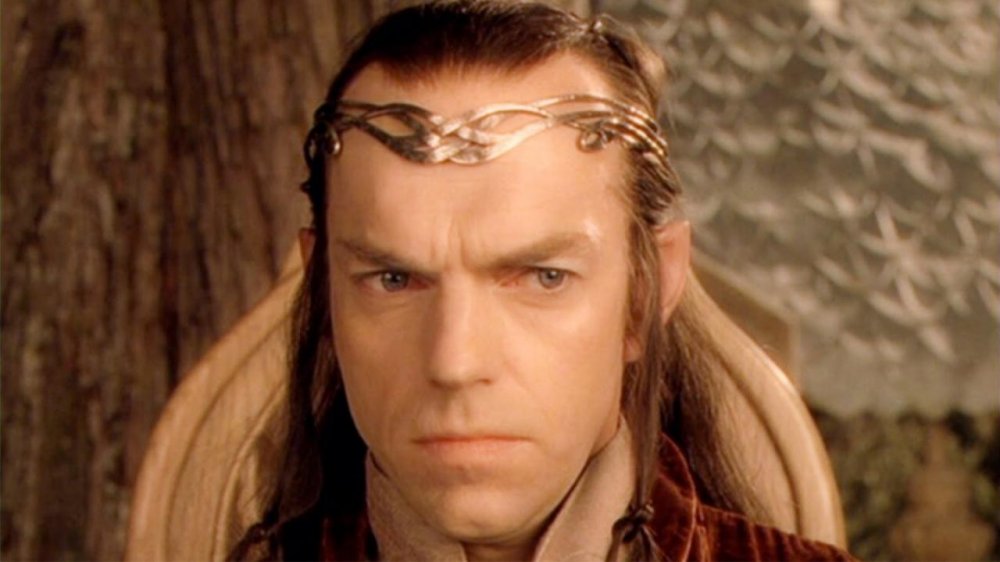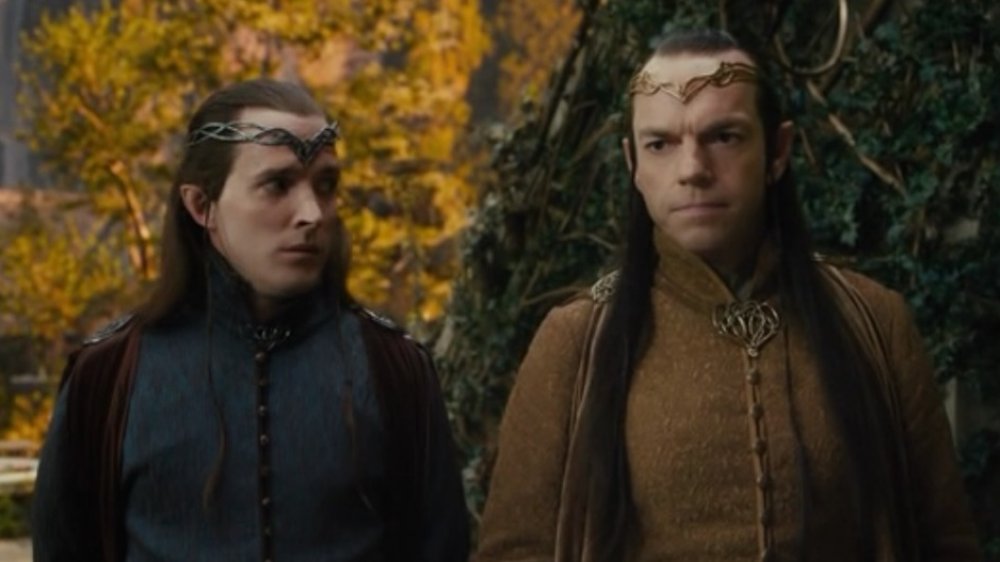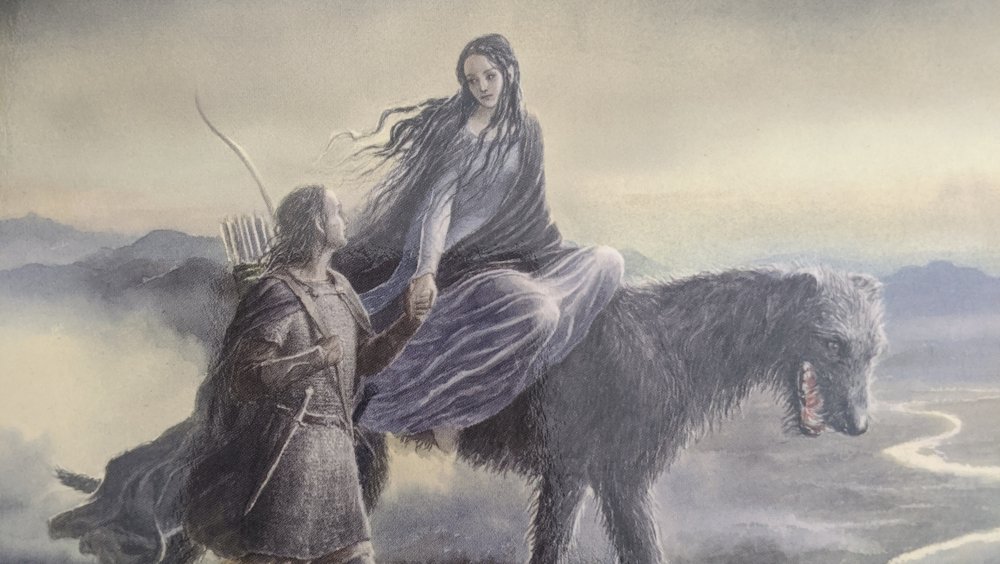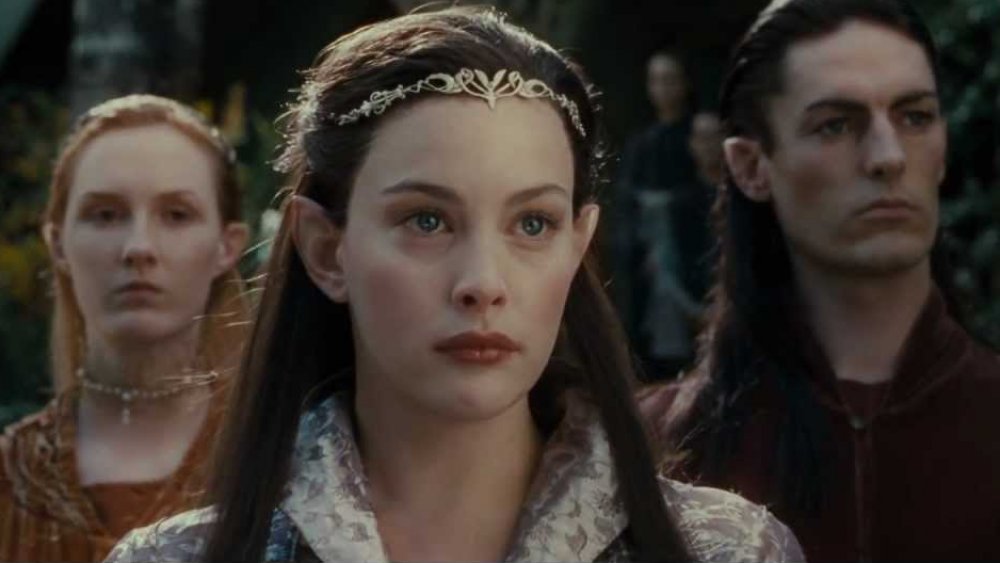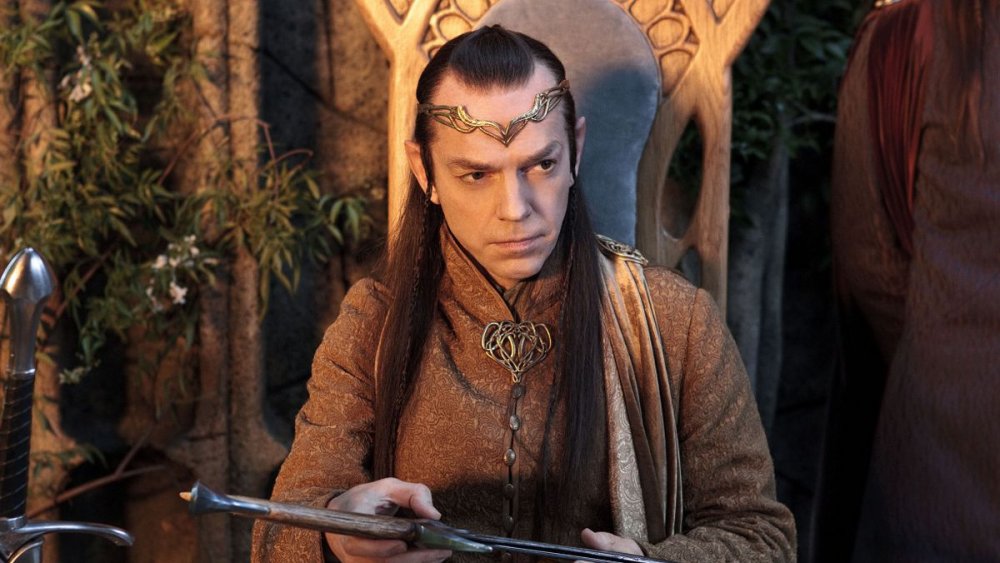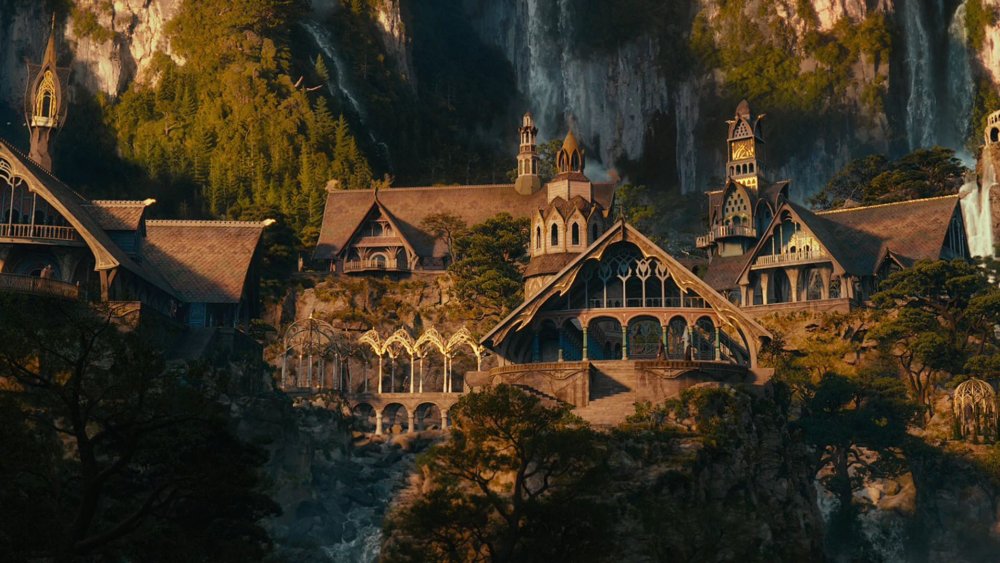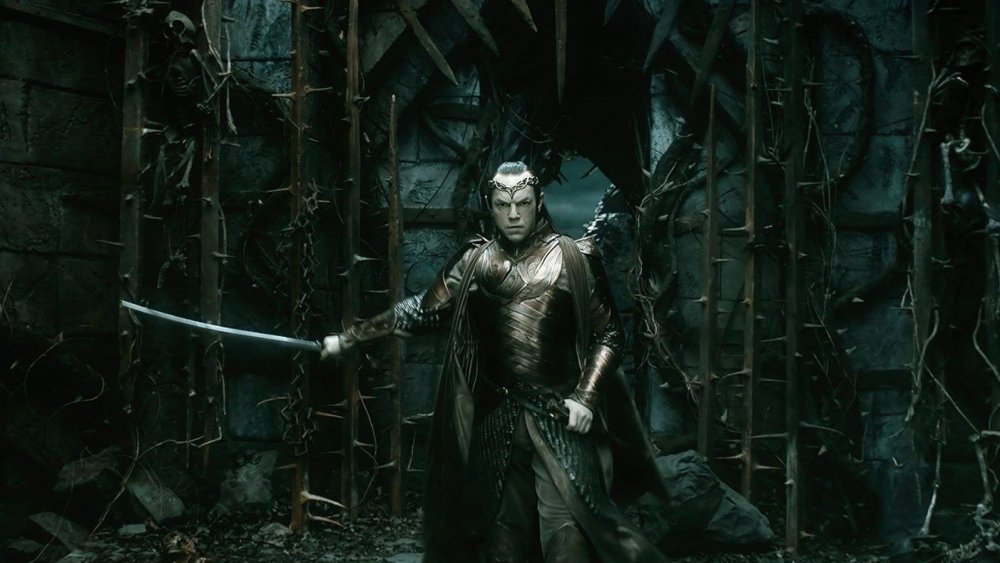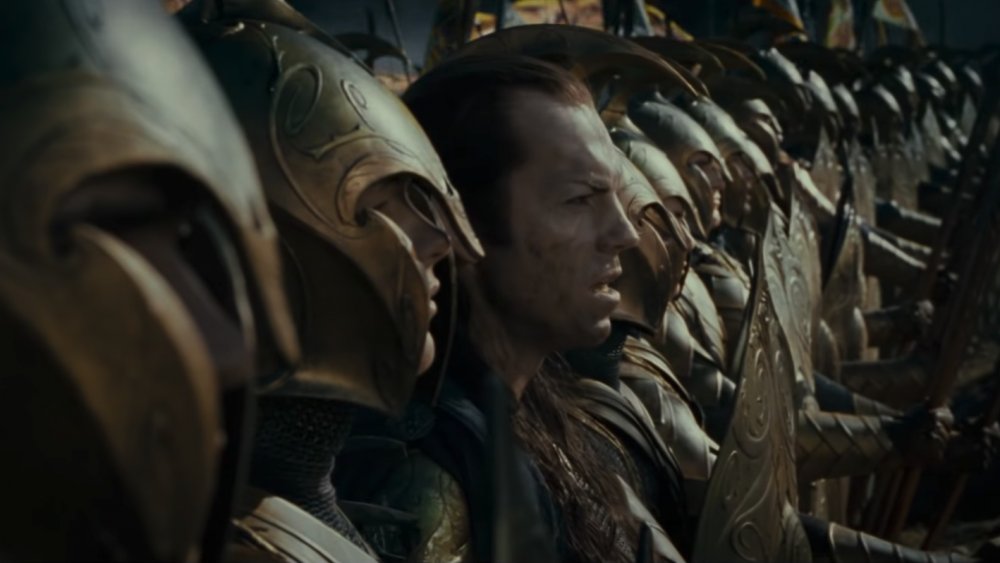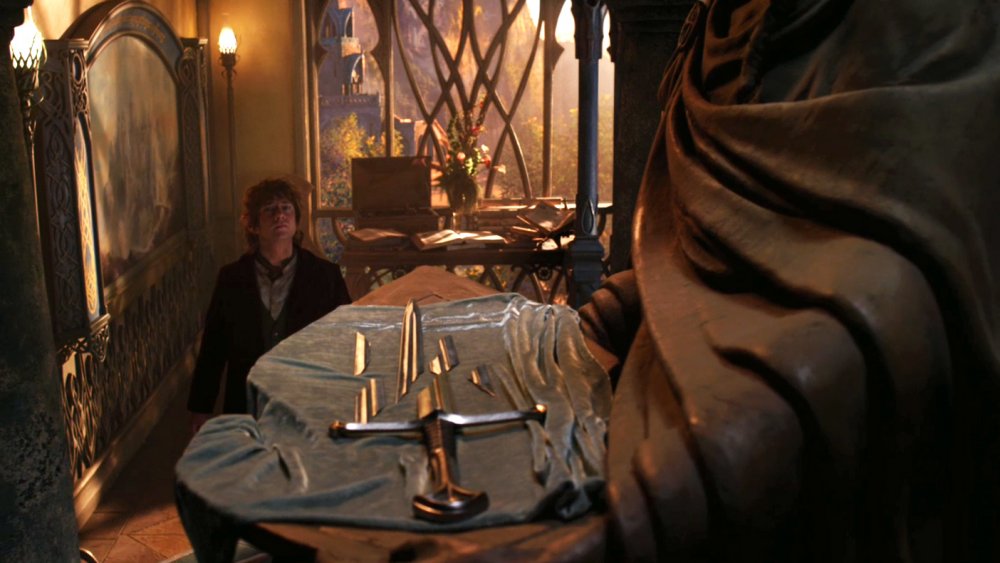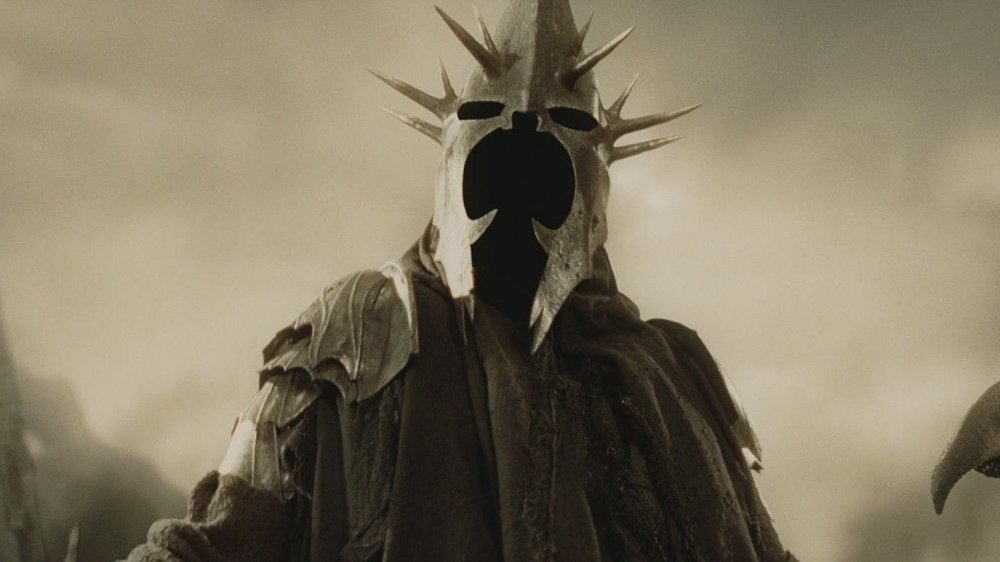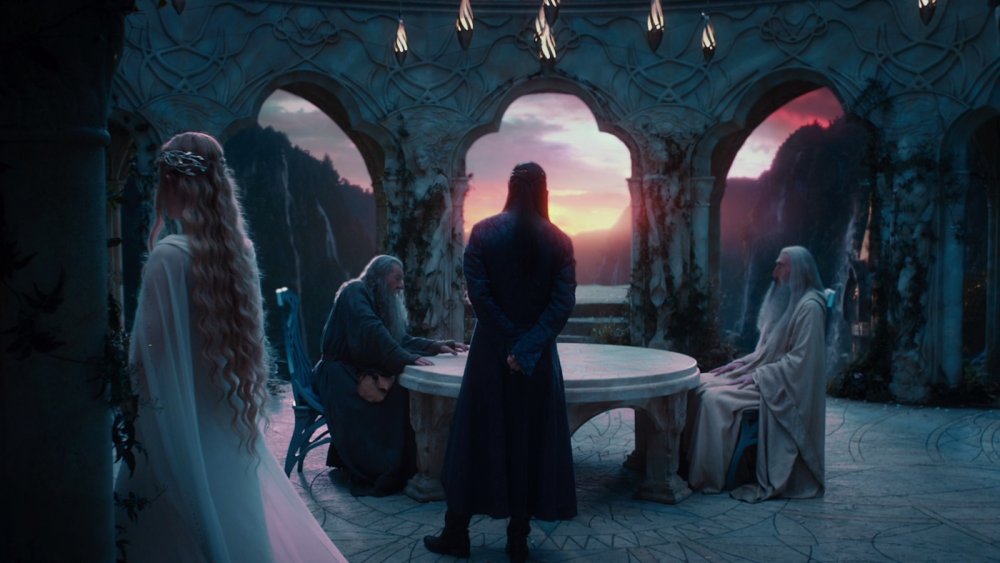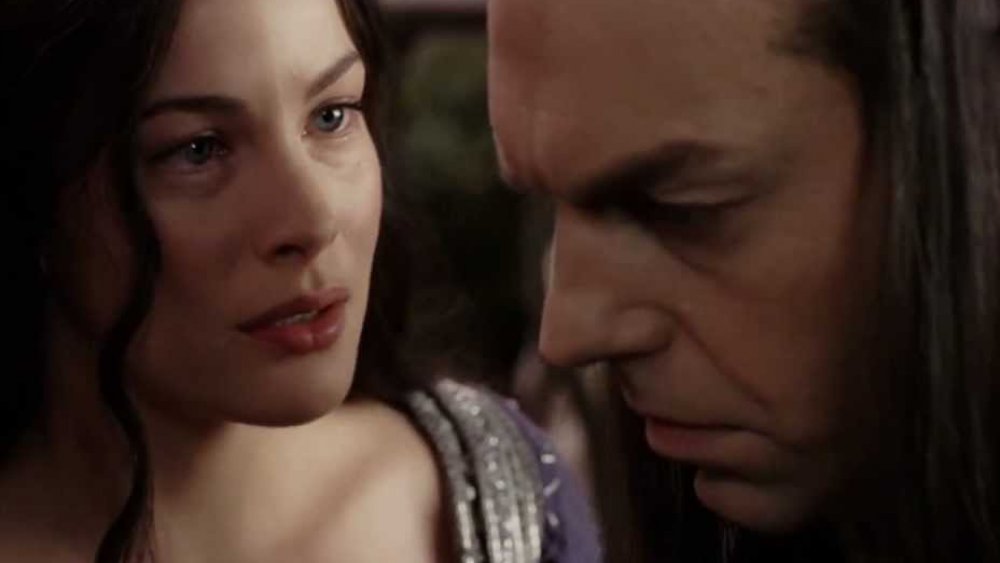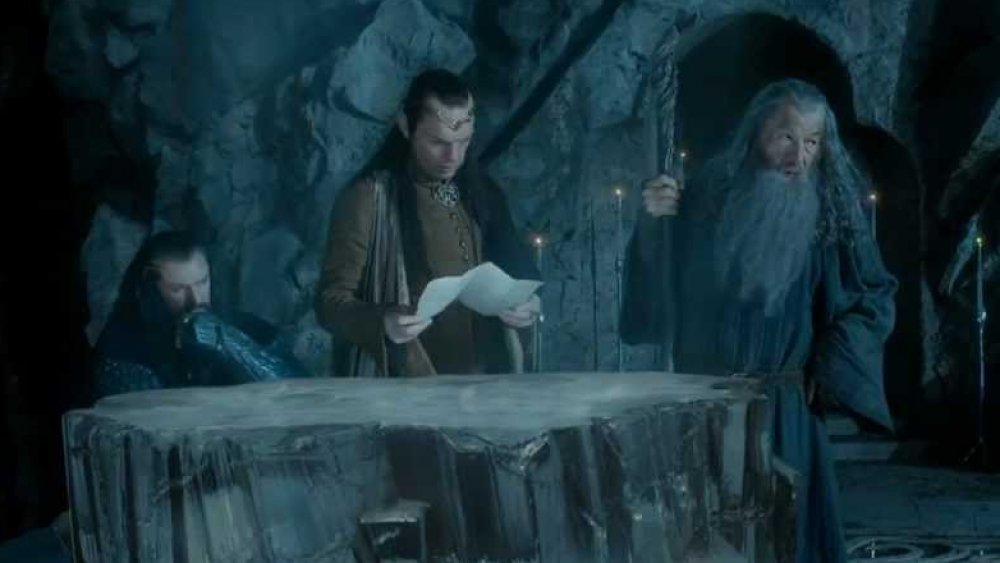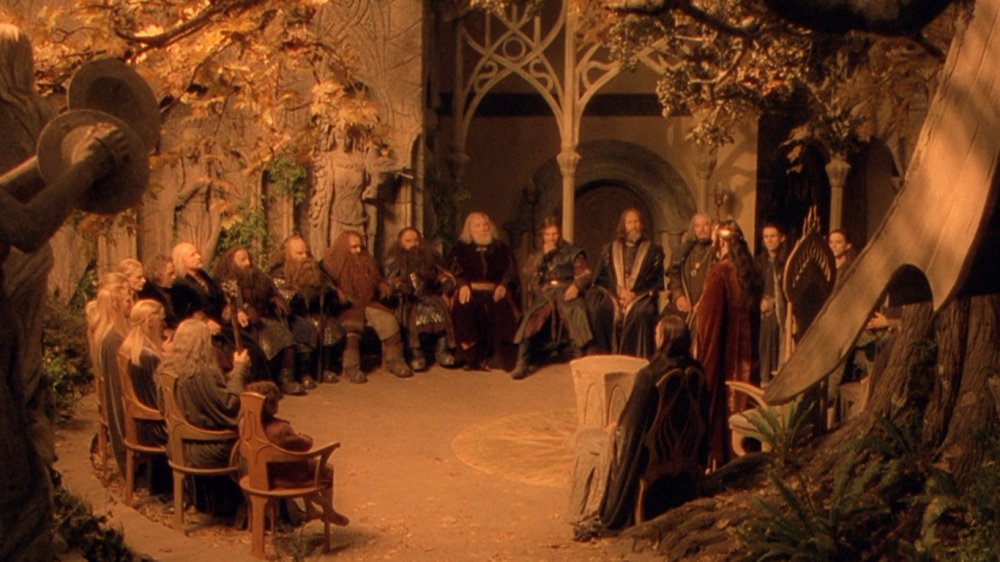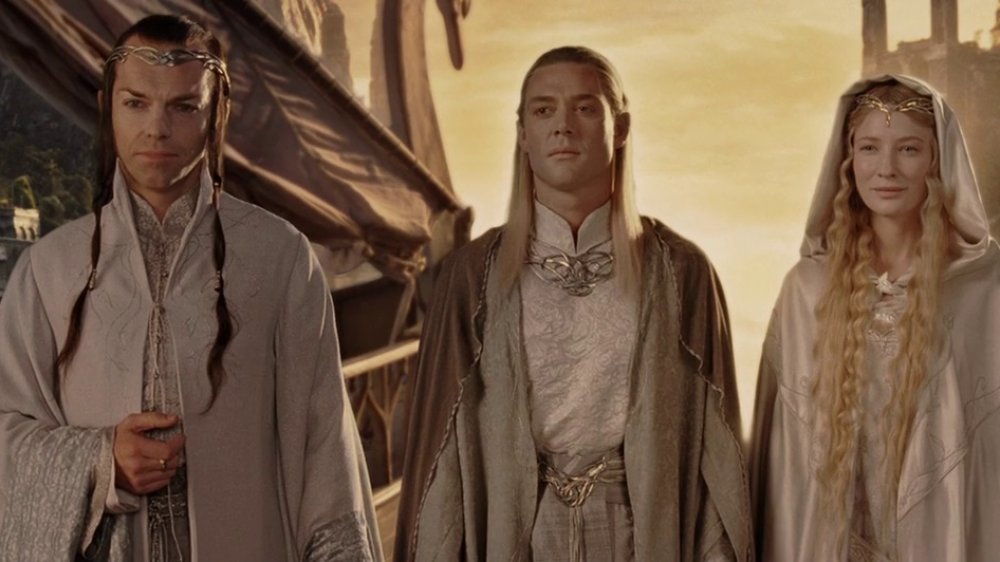Elrond's Backstory Explained
Ah, Elrond. The half-elven leader of Rivendell is famous for his role in the struggle against Sauron. He calls councils in The Lord of the Rings, hosts Bilbo and the dwarves in The Hobbit, and helps to kick the Necromancer out of Mirkwood. Plus, he fosters Aragorn, hand-delivering his sword, Andúril, to him when his time comes. The dude even shows up in The Silmarillion, making him one of the few characters to show up in all three works.
Along with his more well-known accomplishments, Elrond has a pretty incredible past that stretches far back into Middle-earth history. The mover and shaker stays busy throughout the Second and Third Ages, resisting Sauron's rise to power and generally establishing a reputation as one of the wisest people around. But what exactly was he doing all that time? What does this learned loremaster's history actually look like, and what has he accomplished over the millennia of his existence? Well, from his elvish origins to the moment he leaves Middle-earth, here's Elrond's backstory explained.
Elrond is related to, like, everyone
There's no doubt that Elrond accomplishes enough stuff over his lifespan to be important all on his own. However, the dude's family connections certainly don't detract from his natural gravitas. In one way or another, Elrond is related to a ton of different people. For instance, his parents are Eärendil and Elwing, the power couple that plays the primary role in saving Middle-earth from destruction at the end of the First Age. If you go further up the family tree (which is loaded with royalty, by the way), you also find the man Beren and the elf Lúthien, the star-crossed lovers whose adventures form one of Tolkien's most famous First Age epics.
Even Elrond's twin brother, Elros, is the famous first king of Númenor, the nation of men that eventually found Gondor. Elrond's brother is the first in a long line of kings that eventually winds its way down to none other than Aragorn himself, making the elf very distantly related to the man who would eventually become his son-in-law. Yeah, it's weird, but it's not surprising coming from an author who lived in a world where British royalty intermarried with first and second cousins all the time.
Elrond the Half-elven
Any keen-eyed observers may have already noticed that Elrond has both men and elves in his family tree. In fact, he's also related to the Maiar — the angelic spirits who watch over Middle-earth — through his maternal great-great-grandmother. The point is, Elrond is a smorgasbord of different Middle-earth races, which is why he ends up with the nickname "Elrond Peredhel" or "Elrond the Half-elven."
The half-elven are a distinct group of individuals in Tolkien's lore who share the mortality of men and the immortality of elves. This unique situation (it only happens a handful of times) leads to certain individuals being given the freedom to choose mortality or immortality. For instance, Elrond's brother chooses a 500-year-old mortal life as a king of men while Elrond opts for the immortal option, instead. This gives Elrond an incredible depth of wisdom that can only be amassed through thousands of years of experience while also giving him an intimate connection to "mortal men, doomed to die."
This elf is a family man
While Elrond has a pretty stellar pedigree, his immediate family is also pretty darn impressive. First of all, the lord of Rivendell is married to an elven chick named Celebrían — who happens to be none other than the daughter of Galadriel and Celeborn. And for those of you wondering, yes, that makes Galadriel Elrond's mother-in-law.
Together, Elrond and Celebrían have three children. Their twin sons, Elladan and Elrohir, are born a little over a century into the Third Age. Their sister, Arwen, is born a roughly a hundred years after that. Talk about spacing out your kids. Elrond's sons don't make a direct appearance in Peter Jackson's Lord of the Rings trilogy, but they're quite busy on the periphery of the original source material, and they're even present on the Paths of the Dead and at the Battle of the Pelennor Fields.
Arwen, of course, is quite present, especially in the movies, where she saves Frodo from the Black Riders and is shown caught between her father's and Aragorn's affections. Eventually, she becomes the queen of Gondor and its sister kingdom of Arnor, adding that much more power and prestige to the already dominant family.
His early life is pretty busy
Elrond is born at the end of the First Age, and when he's still a child, he's captured during an elven civil war. However, he's treated kindly and even raised by his captors. When the age ends in the catastrophic War of Wrath, Elrond relocates to the elven kingdom of Lindon along the northwestern coast of the continent, where he helps the elven high king Gil-galad who rules over the elves who haven't yet set sail for the Blessed Realm (the immortal lands that Frodo and Bilbo sail to at the end of The Return of the King).
Here, Elrond remains quietly occupied for several centuries. The next time we hear of him, he's approached by a nice fella named Annatar, which means "the lord of gifts." Pretty cool, right? Except, yeah, Elrond and Gil-galad both realize that this fine, wise soul isn't quite what he seems. They don't let him enter into their kingdom, which ends up absolutely being the right call because the mysterious do-gooder is none other than the Dark Lord Sauron in disguise.
The phony lord of gifts ends up seducing another group of elves, helping them forge the Rings of Power while he secretly forges the One Ring to rule them all. War breaks out soon afterward, and eventually, Elrond finds himself at the head of an army heading east, further into the continent, to help his elven compatriots ward off Sauron's belligerent servants.
Elrond is defeated by Sauron and founds Rivendell
In Tolkien's posthumously published book Unfinished Tales, it explains that when Elrond and his army finally arrive on the scene to help their elven allies, they find that Sauron is much stronger than they'd expected. The overwhelming enemy force first destroy the elves living in the area before turning to attack Elrond's smaller army. Things look pretty bleak, but at that moment, Sauron's forces are attacked from behind by none other than a combined army of dwarves and Lothlorien elves coming out of Khazad-dûm. While Sauron's soldiers eventually send the newcomers fleeing back into the underground kingdom, the distraction gives Elrond enough time to retreat northward, far northward, like really far northward.
Once they get to relative safety, Elrond finds that he's cut off from Gil-galad and decides that his best bet is to establish a fortress right where he is rather than fight his way back to Lindon. This would also provide a safe place to help rally the scattered and defeated elves, enabling them to resist any more attacks that Sauron might send into the area. And what does he name this new fortress? Imladris — also known as Rivendell.
Elrond becomes second in command and gets a ring
As the ongoing War of the Elves and Sauron plays out over the next few years, Rivendell comes under siege but is never captured. Once the region is cleared of enemies, a council is held to decide what to do next. Seeing the importance of having a stronghold in the area, it's decided to keep Rivendell in operation, and Elrond is put in command. In fact, at this point, the high king Gil-galad makes him his vice-regent over the area and gives him Vilya, one of the three elven rings, to help him in his new duties.
Vilya is also called the Blue Ring, the Ring of Sapphire, and the Ring of Air. In The Return of the King, this ring is referred to as the "mightiest of the three," showing just how much trust Gil-galad puts in Elrond as his representative. When the dust settles from the war, there's still half of the Second Age to go. However, much of that time passes in relative peace for the people of Rivendell, as Sauron turns his focus elsewhere.
He joins the Last Alliance
At the end of the Second Age, Sauron starts to cause serious trouble once again, and the free peoples of Middle-earth decide to join together to finally exterminate the menace. They form the Last Alliance, and as usual, Elrond is right in the center of the action. Over the next several years, the unified armies attack Sauron in Mordor and slowly win a Pyrrhic victory. Eventually, trapped and with his armies defeated, Sauron himself comes out to fight, killing the elven king Gil-galad and the Númenórean king Elendil. Then, history turns on a dime when Elendil's son, Isildur, cuts the One Ring from Sauron's finger using the shards of his father's sword, Narsil.
Elrond is there throughout all of the drama, and he's even physically present when Sauron is defeated. During the Council of Elrond in The Fellowship of the Ring, Elrond explains his presence at the battle, stating that, "I was the herald of Gil-galad and marched with his host. I was at the Battle of Dagorlad before the Black Gate of Mordor, where we had the mastery," adding a bit later that, "I beheld the last combat on the slopes of [Mount Doom], where Gil-galad died, and Elendil fell, and Narsil broke beneath him; but Sauron himself was overthrown, and Isildur cut the Ring from his hand..."
After Sauron's fall, Elrond encourages Isildur to destroy the Ring, but Isildur just won't listen. Elrond then heads back to Rivendell for some well-earned R&R.
Things chill out, and he rules an elven haven
After the Last Alliance, the Third Age begins, and Middle-earth has a much-needed break from continent-shattering world wars. Safe in his thriving fortress, Elrond continues to rule as the lord of Rivendell for many centuries. At the beginning of this time, he receives the shards of Narsil, the broken sword that cut the One Ring from Sauron's hand, for safekeeping. He also begins a tradition of fostering the various heirs of Isildur, an activity that eventually leads to Aragorn growing up in Rivendell and falling in love with his daughter.
A century into the Third Age, Elrond marries Celebrían, and over the next 150 years, they have their three children. With the initial struggles with Sauron behind him, his mini-kingdom prospering, his family established, and his reputation as a loremaster and healer at all-time highs, this period marks what could arguably be defined as the peak of Elrond's immortal career. While he'll continue doing very important things, from this point forward, he'll steadily be less in the limelight, serving as a source of wisdom and support rather than a leader and a warrior on the front lines.
Elrond tussles with the Witch-king
As the Third Age slowly creeps along, Elrond finds himself getting dragged back into the ugly business of war, initially with the Witch-king that Éowyn eventually kills in The Lord of the Rings.
A little over 1,400 years into the age, the Witch-king arrives in the area around Rivendell with a powerful army. This is the same attack that ends up destroying the tower on Weathertop, leaving the ruins where Frodo is stabbed by the same villain much later in time. While the Witch-king is initially victorious, he's ultimately defeated by the elves, partly thanks to Elrond who borrows some soldiers from his in-laws in Lothlorien to help stop the invasion.
After this war, Elrond continues to shepherd the folk of Rivendell through the varying fortunes of northern Middle-earth. Eventually, a force from Rivendell helps to destroy the Witch-king's northern realm, providing a sense of peace in the north for a time.
Elrond joins the White Council
While toppling the Witch-king is a good start, everyone, including Elrond, knows that the endgame revolves around defeating Sauron, who's remained relatively quiet ever since his defeat at the hands of the Last Alliance. However, the Dark Lord continues to gather strength in secret, and eventually, many of the wisest in Middle-earth pick up on his resurgent power.
With this potential peril in mind, several powerful people form the White Council. Also known as the Council of the Wise, this group includes bigwig names like Gandalf, Saruman, Galadriel, and of course, Elrond. In the book The Peoples of Middle-earth, J.R.R. Tolkien's son, Christopher Tolkien, records that this council "is formed to unite and direct the forces of the West, in resistance to the shadow."
Before they're even officially a group, the council initially votes to drive Sauron, who's secretly operating as the Necromancer at this time, out of his stronghold in Mirkwood. This leads to the "Watchful Peace," a period of 400 years during where Sauron hangs out in eastern Middle-earth, leaving the western regions in peace.
When the Dark Lord returns at the end of that time, the Council officially forms, meets up, and serves as the primary resistance to Sauron in the lead up to the War of the Ring. Their greatest act takes place during the events of The Hobbit when they attack the Necromancer together and drive him out of Mirkwood for good.
Our hero almost loses his wife
Elrond's wife, Celebrían, and his two sons play a fairly minor role throughout the course of his life story. However, there's one tragic event that takes place roughly 2,500 years into the Third Age (just 500 years before The Lord of the Rings) that involves all three of his close kin.
One day, Celebrían is traveling through the Misty Mountains on a trip from Rivendell to visit her parents in Lothlorien when she's captured by orcs. While in captivity, she's tortured and eventually gets a poisoned wound. Her sons, Elladan and Elrohir, set out to rescue their mother, and they succeed in tracking her down and recovering her. They quickly bring her back to Rivendell, where their father is able to heal his wife from her physical wounds.
However — and here's where the real tragedy comes in — the wife of Elrond is never able to truly recover from the traumatic experience, either mentally or spiritually. She's so worn down that she eventually loses the desire to dwell in Middle-earth. The year after the whole ordeal, she says goodbye to her family and sails in a ship over the seas to the Blessed Realm, searching for healing and peace.
The loremaster helps Bilbo Baggins
As the Third Age slowly winds down, Elrond finds himself once again in the spotlight, this time as a counselor, a healer, and a host. The first and last of these are addressed in The Hobbit when the lord of Rivendell puts up Bilbo Baggins, Gandalf the Grey, and a posse of dwarves led by Thorin Oakenshield as they head to the Lonely Mountain.
While the group is recovering in Rivendell, Elrond plays a particularly pivotal role by discovering the moon-letters hidden on the company's map of the Lonely Mountain. The message, read by Elrond, explains the size of the hidden door and provides the crucial information to "stand by the grey stone when the thrush knocks ... and the setting sun with the last light of Durin's Day will shine upon the key-hole." In other words, without Elrond's expert nocturnal rune-reading, the entire quest to recover the dwarven kingdom could very likely have ended with Bilbo, Thorin, and their friends fried to a crisp.
Elrond gets involved in the War of the Ring
Of course, Elrond is most well-known for his involvement in the War of the Ring. His home provides a safe haven for Frodo and his companions as they're chased by the Black Riders, and it's Elrond himself who heals Frodo of his deadly knife wound. After the Ringbearer's recovery, Elrond hosts an on-the-spot council where it's decided that the One Ring should be destroyed.
Elrond then hand-selects the famed Fellowship of the Ring. After this, the elven lord continues to play a significant part in the story. In the books, he sends his sons to join Aragorn on the Paths of the Dead. He also sends a message with them, advising the heroes to attack the Black Gate in order to distract Sauron from Frodo's quest. In the movies, he even personally delivers the sword, Andúril, to his future son-in-law.
After the dust settles, the elf escorts his daughter to Gondor, where Arwen chooses mortality and marries Aragorn. This last bit was the final act in a long-running romance that had seen Aragorn fall head over heels for Arwen when he was but a 20-year-old youth. Elrond had initially held the amorous young warrior back, but over time, Aragorn had won the love of his daughter — a situation that Elrond agreed to only if Aragorn became king.
Elrond departs from Middle-earth
Even though Elrond fully supports the union of Aragorn and Arwen, the loss of his daughter is a grievous blow to the elven lord's spirits. Not only does he leave her behind in Gondor, but her choice to become mortal means she'll eventually die, and he will never see her again.
With the Third Age officially wrapping up, the war with Sauron completed, and his daughter married and mortal, Elrond finally grows weary of Middle-earth. At this point, he's been involved in the events of the continent for over 6,000 years, and he finds that he's ready to follow so many other elves, including his own wife, into retirement in the West.
Accompanied by a stellar crew that includes Gandalf, Galadriel, Frodo, and Bilbo, Elrond finally sets sail for the immortal Blessed Realm in the last year of the Third Age, bringing an end to his long labors in Middle-earth.
